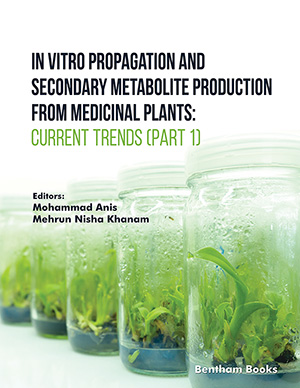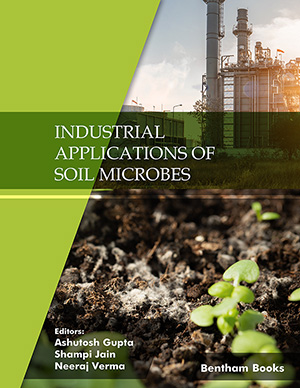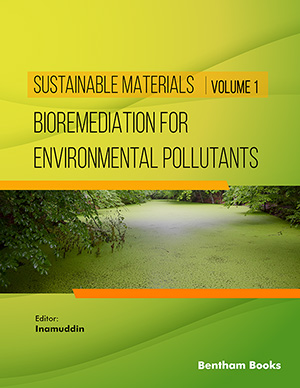Abstract
The present study investigated the difference in the phytoconstituents in the
methanolic extract of mother and tissue cultured plants of Scaevola taccada (Gaertn).
Roxb., an important medicinal plant of the Goodiniaceae family. An efficient protocol
was established to rapidly multiply S. taccada using nodal explants. The explants were
cultured on MS medium supplemented with different concentrations of BAP (0.5 mg/l,
2.5 mg/l, 5.0 mg/l, 10.0 mg/l), IAA (1.0 mg/l), Kinetin (1.0 mg/l), ascorbic acid (100
mg/l) and citric acid (25 mg/l). The maximum number of multiple shoots were obtained
in MS medium supplemented with BAP (5.0 mg/l) in combination with Kinetin (1.0
mg/l) and additives ascorbic acid (100 mg/l) and citric acid (25 mg/l). Subculturing
multiple shoots at periodic intervals of every 4 weeks produced the maximum number
of shoots. The in vitro generated shoots were rooted in half-strength MS medium
supplemented with IBA (0.5,1.0,1.5,2.0,2.5) mg/l NAA (0.5,1.0,2.0,2.5) mg/l. Among
these, the highest root induction was obtained in IBA (1.5 mg/l) and NAA (0.1 mg/l).
The rooted plantlets were transferred to pots containing a mixture of vermiculite and
perlite for acclimatization for three weeks. The plants were hardened in a greenhouse
and planted in open fields. Phytochemical analysis shows the methanolic extracts of the
tissue cultured plants produced more bioactive compounds having various
pharmaceutical importance than the mother plant.
Keywords: Acclimatization, BAP, Gas chromatography-mass spectrometry, Growth regulators, IBA, NAA.






















